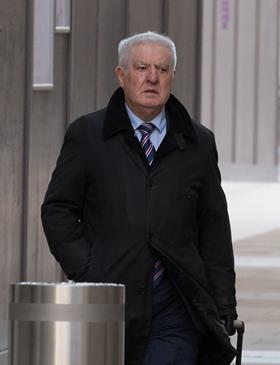The chair of the Post Office Inquiry has said he will not take further action to try to force a key witness to appear next month. Jane MacLeod, Post Office general counsel from 2015 to 2019, was due to give evidence over two days in June, but it emerged last week that she was refusing to co-operate with the inquiry.
She was removed from the timetable after refusing to attend to give oral evidence or give evidence remotely.
In an update published today, Sir Wyn Williams explained that the inquiry sent MacLeod a request to produce written evidence and wrote in February to inform her she was being called to give oral evidence.
MacLeod, who is believed to be living in her native Australia, provided a draft witness statement last month but her lawyer said she was ‘questioning… whether she would be able to assist the inquiry further’ by turning up in person.

Williams said the inquiry offered to meet MacLeod’s travel and accommodation expenses, but she had ‘made it clear’ she would not co-operate further.
The chair said his view was that the Inquiries Act 2005 cannot be used to compel witnesses who are based abroad and not UK nationals to give evidence. Even if she could be issued with a notice to attend, methods of enforcement are ‘very limited’. Further, the High Court in England and Wales would not have the power to compel MacLeod to give evidence whilst she is based in Australia.
Even criminal proceedings against MacLeod for failing to provide a reasonable excuse for failing to comply with an Inquiries Act notice would not bring her before the inquiry, the chair said. 'A magistrates’ court would have to convict Ms MacLeod in her absence and sentence her to a term of imprisonment of four months or more. In those circumstances, it may be that extradition proceedings could be initiated against Ms MacLeod,’ said Williams. ‘Assuming that it was proper and possible to take all of those steps, it would be an extraordinarily long process. I am in little doubt that it would be impossible to do that within a reasonable timeframe for me to report to parliament.’
He noted there had been ‘a considerable amount of disclosure’ on issues relevant to MacLeod and he would compare this to what she said in her witness statement. She had been a key figure as the Post Office launched a sustained and costly defence to the group litigation brought by hundreds of sub-postmasters – a defence which included the unsuccessful application for a High Court judge to recuse himself.
‘Whilst it would have been greatly preferable to hear from Ms MacLeod, I do not consider that her absence prevents me from establishing the facts of her involvement,’ added Williams.
MacLeod was admitted as a solicitor in England and Wales in 1993. She is currently listed as non-practising.



























23 Readers' comments